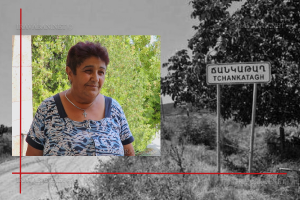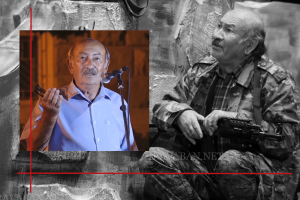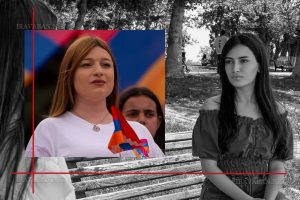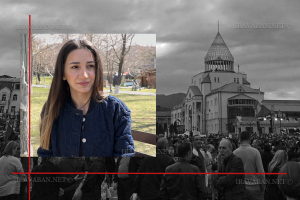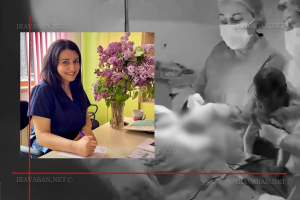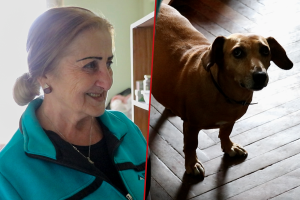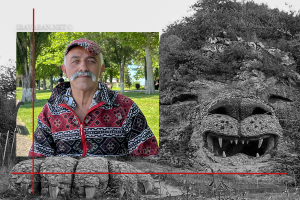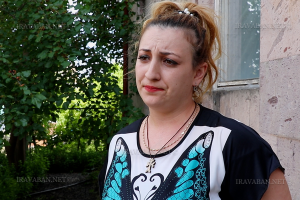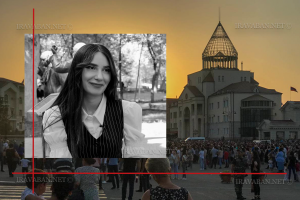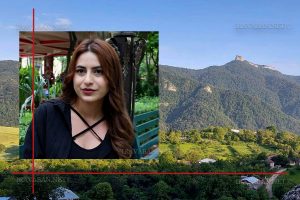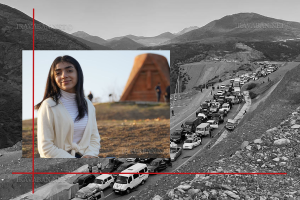Liana Muradyan, who was forcibly displaced from the occupied Republic of Artsakh, told in the framework of “Artsakh: Armenian Genocide 2023. Stories of Survivors” documentary project of Iravaban.net that since 2005 she served in the State Service of Emergency Situations of the Republic of Artsakh. She mentioned that during the war unleashed by Azerbaijan in 2020, they did not leave Artsakh and even her children witnessed all this.
“Our house was near Shushi, and whenever they hit, the sound were heard well. My little one said, “Mummy, are they hitting us or are we hitting them?” I said, “it is okay, don’t be afraid, but they have seen everything.” For the three years that we lived, there was fear, but there was also hope that everything would be fine. The surrendered lands will return to us, it will be fine. Even until the last moment, we believed that it would be fine, it wouldn’t end like this,” she said.
Liana remembers the days of the blockade with a smile. She says that now they remember those days with a different warmth. “How did those days bring us together, even when we used to go to stand in queues at three or four in the morning to buy bread?”
She says that the happening was a great disaster, a great loss.
“We will not be able to come to our senses for the rest of our lives, no matter how hard we try, no matter how much we pull ourselves together. We are here for the children,” Liana says.
According to her, an Artsakh citizen is a different person. “I’m not saying it’s good or bad, but it’s different, it’s different from everyone else. It doesn’t matter how many years it has been since he left Artsakh, if he has the blood of an Artsakh citizen in him, it is all the same, he is an Artsakh citizen, who will not change. My child was born there, so Artsakh was my half, I left my half. Half of my heart is left there,” our interlocutor says.
Referring to the reintegration proposed by the Azerbaijani side, she says that she will not even try because she does not believe in the enemy.
“I do not believe it, I cannot try to live with them,” she says and notes that she doesn’t have any expectations from the international community either.
“They should have solved the Karabakh issue not now, it should have been resolved a long time ago. They should not have waited for 120,000 Armenians to be left without a home,” Liana says.
Our interlocutor says that she wants her child to grow up Armenian, to grow up among Armenians.
” I will work, I’ll do my best to create a future for my children here,” she said.
Details in the video.
——————————————————————————————————————
“Artsakh: Armenian Genocide 2023. Stories of Survivors” documentary project of Iravaban.net is aimed at collecting the memories and testimonies of citizens forcibly displaced from Artsakh occupied by Azerbaijan, about the genocide of the Armenians of Artsakh committed by Azerbaijan, atrocities, the days of war, the path of deportation, etc.
Iravaban.net seeks help from citizens who will voluntarily agree to translate materials into different languages: Russian, English, French, Arabic, Persian, Turkish, Georgian, Chinese…
You can write to our e-mail address at: [email protected]
To donate for realization of the project: https://iravaban.net/en/become-a-supporter
Details in the video.
Armenian Lawyers’ Association is the author of the idea “Artsakh: Armenian Genocide 2023. Stories of Survivors” documentary project of Iravaban.net and is the owner of copyright of the materials created within the framework of the project. In case of using the materials produced within the framework of the project, it is necessary to obtain the written permission of the Armenian Lawyers’ Association.
Hasmik Sargsyan

